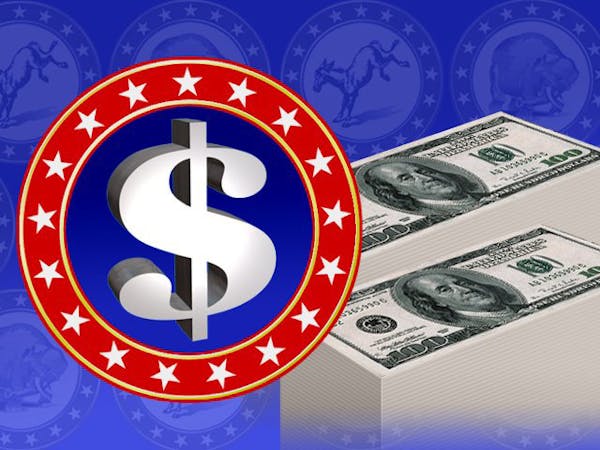In its March 10 editorial, the Star Tribune wrote that wages for tipped employees "were a high-profile issue in the 2010 gubernatorial race. That election's outcome suggests that Minnesotans believe an employer's duty to pay a minimal wage is not diminished when that employee receives often unpredictable additional pay from customers."
The idea of a "tip credit" was tossed about badly as a political football in the 2010 election. Republican gubernatorial candidate Tom Emmer's loss that year hardly qualifies as a referendum on fair and appropriate compensation for tipped employees. There are some facts that the editorial writer and the public would benefit from knowing:
• In Minnesota, tips are treated as income — for all purposes other than the minimum wage. Employees pay taxes on their tips, and employers pay Medicare, FICA and unemployment taxes on employees' tips. Forty-three states and the District of Columbia recognize that tips are income. Minnesota believes that tips are income when it comes to collecting tax, but not for minimum-wage calculations. Fairness would suggest that tips either are income or are not.
If the state chooses to not establish a tiered minimum wage for tipped employees — recognizing tips as income — then it should stop taxing employees and employers on tips.
• Tipped employees are often the highest-paid employees in a restaurant. Tipped servers and bartenders at my company's 13 restaurants in the metro area average $22.69 and $22.09 per hour, respectively. This is consistent with a recent survey of Minnesota restaurants.
• A recent article in the Star Tribune cites a report by the Minnesota Department of Employment and Economic Development stating that "the number of well-paying job openings in Minnesota rose dramatically in 2012." It listed the top 10 jobs that pay $25 per hour or more, including nurses, software developers, financial managers and seven others. The hourly pay for these 10 jobs ranges from $25.17 to $36.59. Legislators would not suggest that these folks need a state-mandated raise to correspond with the increase in minimum wage. It is the same with tipped employees. They are doing pretty well earning $22-plus per hour.
• The proposal from the Minnesota Restaurant Association would keep tipped employees at the current federal minimum wage of $7.25 an hour and guarantee they make at least $12 an hour with tips and wages. If tips and wages didn't reach that total, the employer would pay the difference. That would not be a cap on pay, but a floor that would always be protected by the employer.
Establishing a tiered minimum wage for tipped employees will enable a minimum-wage increase to be directed to employees who really need the help and will benefit from the increase. Restaurants are not opposed to a reasonable increase in the minimum wage, but the tips that are required to be reported by law and are broadly taxed need to also be recognized as income for purposes of complying with the minimum wage.
Please do not add this financial burden to an already overtaxed hospitality industry that provides tremendous economic benefit to the state and more than 250,000 jobs in almost 10,000 eating and drinking places in Minnesota.
-----------------------
Alan Ackerberg, of St. Louis Park, is a partner in Parasole Restaurant Holdings Inc.
How 'the Squad' and like-minded progressives have changed their party
Protect kids online


